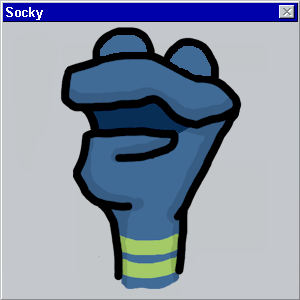The World's First Software Engineer
July 8, 2008 1:16 PM Subscribe
The World's First Software Engineer David Caminer, the System designer behind LEO, the world's first business computer, has died, aged 92. He was a true pioneer, inventing many of the standards now called systems engineering.
He failed to get into Cambridge and said later that "university seemed an irrelevance in the days of mass unemployment and hunger marches." He became a management trainee at Lyons - a catering company in London - where he was responsible for creating the world's first business application of computing on a system called LEO and the standards that were later formalized as software engineering. "Americans can’t believe this,” Paul Ceruzzi, a historian of computing and curator at the National Air and Space Museum, said in an interview last week. “They think you’re making it up. It really was true.”
He failed to get into Cambridge and said later that "university seemed an irrelevance in the days of mass unemployment and hunger marches." He became a management trainee at Lyons - a catering company in London - where he was responsible for creating the world's first business application of computing on a system called LEO and the standards that were later formalized as software engineering. "Americans can’t believe this,” Paul Ceruzzi, a historian of computing and curator at the National Air and Space Museum, said in an interview last week. “They think you’re making it up. It really was true.”
0x2E
posted by CynicalKnight at 1:42 PM on July 8, 2008
posted by CynicalKnight at 1:42 PM on July 8, 2008
main() {
printf("hello, underworld");
}
posted by It's Raining Florence Henderson at 1:50 PM on July 8, 2008 [2 favorites]
printf("hello, underworld");
}
posted by It's Raining Florence Henderson at 1:50 PM on July 8, 2008 [2 favorites]
static void Main(string[] args){
Console.WriteLine("Goodbye, World");
}posted by boo_radley at 2:16 PM on July 8, 2008 [1 favorite]
.
posted by aerotive at 2:38 PM on July 8, 2008 [1 favorite]
posted by aerotive at 2:38 PM on July 8, 2008 [1 favorite]
He wasn't the first software engineer. The article never said he was. It doesn't even use the word "software" anywhere.
Bad poster. No cookie.
The first software engineer is widely recognized to have been Augusta Ada Byron King, Countess of Lovelace, http://en.wikipedia.org/wiki/Ada_Lovelace.
posted by Captain Ligntning at 3:06 PM on July 8, 2008
Bad poster. No cookie.
The first software engineer is widely recognized to have been Augusta Ada Byron King, Countess of Lovelace, http://en.wikipedia.org/wiki/Ada_Lovelace.
posted by Captain Ligntning at 3:06 PM on July 8, 2008
00101110
posted by ZenMasterThis at 3:20 PM on July 8, 2008
posted by ZenMasterThis at 3:20 PM on July 8, 2008
*mercury flows to zero*
posted by BrotherCaine at 3:46 PM on July 8, 2008
posted by BrotherCaine at 3:46 PM on July 8, 2008
return INFINITY / 0;
posted by The Power Nap at 5:12 PM on July 8, 2008
posted by The Power Nap at 5:12 PM on July 8, 2008
00000000
It's Raining Florence Henderson writes "main()"
main returns int, goddammit.
posted by orthogonality at 5:19 PM on July 8, 2008 [1 favorite]
It's Raining Florence Henderson writes "main()"
main returns int, goddammit.
posted by orthogonality at 5:19 PM on July 8, 2008 [1 favorite]
100 END
The first software engineer is widely, but incorrectly, recognized to have been Augusta Ada Byron King, Countess of Lovelace
FTFY. She didn't actually write any programs or understand that much, according to the history of Babbage I read last year.
posted by DU at 6:04 PM on July 8, 2008
The first software engineer is widely, but incorrectly, recognized to have been Augusta Ada Byron King, Countess of Lovelace
FTFY. She didn't actually write any programs or understand that much, according to the history of Babbage I read last year.
posted by DU at 6:04 PM on July 8, 2008
DUde, you need to study more. Her contributions are widely recognized, especially given that she wrote a workable program for Bernoulli calculations. You want to disagree? That's your right. But you'd be wrong.
posted by Captain Ligntning at 6:39 PM on July 8, 2008
posted by Captain Ligntning at 6:39 PM on July 8, 2008
re: Ada Lovelace. I heard a lecture given by the guy who re-created Babbage's Difference Engine. He did a lot of research from original sources while building the machine and said that Ada's contributions have been wildly overblown by some, she did recognize and write about one very significant thing that no one else had observed. That computers were not merely manipulators of numbers, but that any symbol, from letters to words to images, could be represented and manipulated by machines.
posted by CheeseDigestsAll at 6:43 PM on July 8, 2008 [1 favorite]
posted by CheeseDigestsAll at 6:43 PM on July 8, 2008 [1 favorite]
I heard overblown as well, but I'd very much like to be proven wrong. Even the most charitable description has a single algorithm. At best that's a single "contribution" and would make her the first vaporware programmer, not software engineer.
posted by DU at 6:52 PM on July 8, 2008
posted by DU at 6:52 PM on July 8, 2008
Detailed discussion [BBC audio] on Ada Lovelace and Charles Babbage's contributions to computation. (Executive summary: they made major advances which were entirely forgotten and had no influence on subsequent computer design or theory).
posted by GeorgeBickham at 7:38 PM on July 8, 2008
posted by GeorgeBickham at 7:38 PM on July 8, 2008
Captain Lightning, you need to distinguish between a software engineer and a programmer. I would be one of the first to fight Ada Lovelace's corner re being the first programmer. Software engineering on the other hand is a discipline. David Caminer created the first set of software process standards and defined programming conventions that were adopted by the British Computer Society. These led to the creation of Software Engineering as a discipline.
posted by Susurration at 8:13 PM on July 8, 2008
posted by Susurration at 8:13 PM on July 8, 2008
they made major advances which were entirely forgotten and had no influence on subsequent computer design or theory
That is to say entirely forgotten and having no influence on subsequent design theory
until now. It's a little like saying Aristotle was entirely forgotten and had no influence on subsequent development of Europe.
posted by humanfont at 9:33 PM on July 8, 2008
That is to say entirely forgotten and having no influence on subsequent design theory
until now. It's a little like saying Aristotle was entirely forgotten and had no influence on subsequent development of Europe.
posted by humanfont at 9:33 PM on July 8, 2008
humanfont: point. I should have said "have had no influence."
posted by GeorgeBickham at 9:47 PM on July 8, 2008
posted by GeorgeBickham at 9:47 PM on July 8, 2008
DU, using a trivial Wikipedia article is not research, nor is that article remotely complete. Do more research.
Susurration, as a professional software and systems engineer of 30 years experience, I'm well aware of the differences. I've read all of the Babbage and Lovelace papers. Have you? If so, I'd love to discuss them in detail with you. If not, then you're not well equipped to argue with anyone.
posted by Captain Ligntning at 10:14 PM on July 8, 2008
Susurration, as a professional software and systems engineer of 30 years experience, I'm well aware of the differences. I've read all of the Babbage and Lovelace papers. Have you? If so, I'd love to discuss them in detail with you. If not, then you're not well equipped to argue with anyone.
posted by Captain Ligntning at 10:14 PM on July 8, 2008
Captain Lightning, sounds like we have more in common than I thought ... :-) But I still beg to differ. Suffice it to say that, as well as being a practitioner myself, I have researched the topic in (probably) as much detail as you -- and I believe that David Caminer's contribution was different - and more significant to the discipline of SE, which is about roles and processes. Whereas Ada's contribution was more significant to data processing, which is about algorithms and mathematical relationships. Without the latter, we could not write programs. Without the former, we could not develop business applications of programs.
posted by Susurration at 10:40 AM on July 9, 2008 [1 favorite]
posted by Susurration at 10:40 AM on July 9, 2008 [1 favorite]
Wow - thanks tellurian, for the LEO link! I knew this one existed, but I could not find it for my original post. This stuff is really, really fascinating!
posted by Susurration at 10:42 AM on July 9, 2008
posted by Susurration at 10:42 AM on July 9, 2008
If the LEO computer could be made operational again, would there be any regulations prohibiting it because of the mercury?
posted by BrotherCaine at 3:50 PM on July 9, 2008
posted by BrotherCaine at 3:50 PM on July 9, 2008
« Older The successor to TimeCube? | Freaks Newer »
This thread has been archived and is closed to new comments


posted by yort at 1:21 PM on July 8, 2008